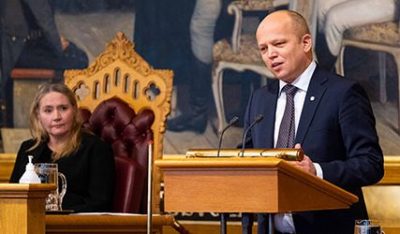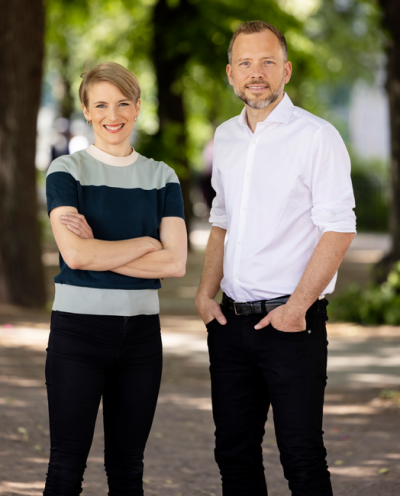Prime Minister Jonas Gahr Støre and his new Labour-Center minority government is being put to the test this week, over its newly revised, proposed and much-criticized state budget proposal. Negotiations over how Norway should raise and spend its taxpayers’ money will also set the tone for whatever solidarity exists on the left side of Norwegian politics.

The new government’s proposed changes to the former government’s budget presented last month have been bashed from all sides. It’s especially the criticism from the left-wing parties, to which the new government must turn for support, who are most unhappy. They claim the government’s budget still favours the oil and gas industry over the climate and environment, and that it fails to better reduce social differences among Norwegians. The credibility of both Prime Minister Jonas Gahr Støre and Finance Minister Trygve Slagsvold Vedum is at stake.

Both Støre’s Labour Party and Vedum’s Center party campaigned on claims they’d “develop, not phase out” the country’s oil industry but still cut Norway’s emissions. Few understand how that can be accomplished. Critics have also claimed that the government’s current budget proposal allocates more money to measures that can hurt the climate than to measures that strengthen it. Several cities around Norway have decried, for example, a lack of funding from Støre’s budget for more public transport
Støre and his ministers have countered that they will bring emissions down while also taxing the wealthy harder and making life better for vanlige folk (ordinary people, whomever they may be). Emissions will be reduced, they claim, through a new mechanism in the works that will make each ministry responsible for maintaining its own “climate budget.” That suggests they’ll need to balance emissions just like they balance money.
Much now lies in the hands of the Socialist Left Party (SV), which pulled out of talks to form and join the new left-center government over the same issues it’s still unhappy with now: climate and social differences. SV presented its own budget this week, with proposals to boost overall taxes by more than NOK 20 billion. Everyone earning more than NOK 600,000 (USD 71,000) would get higher tax bills, as will homeowners and companies. Norway’s much-debated fortune tax (on individual net worth) would also rise, as would taxes on stock dividends.
SV also wants to raise Norway’s carbon tax by 50 percent over 2021 levels, much more than the already-high 29 percent proposed first by the Conservatives (which lost the national election September) and maintained by Labour and Center (which won). SV, along with Norway’s two other left-wing parties the Greens and the Reds, also wants oil companies to pay higher taxes, with its carbon tax jumping 52 percent. The Conservatives’ proposed increase for emissions tax on oil fields was set at 15 percent, since the oil companies already pay a quota price for their emissions, with everyone else paying nearly 29 percent more.

Audun Lysbakken, leader of SV, is also maintaining the party’s demands to tighten highly controversial tax relief packages granted last year to the oil companies when the Corona crisis was at its height. A majority in Parliament at that time wanted to especially maintain oil investments, also in exploring for new sources of oil, while SV wants to give them a much shorter deadline for putting forth any such expansion plans, now by January 1st. SV also wants to phase out, not develop, the oil industry.
SV’s Kari Elisabeth Kaski will be leading negotiations with the two government parties. Newspaper Aftenposten reports that Støre’s government wanted to boost taxes by NOK 6.6 billion more than what the former government proposed. SV wants three times that, with much of it aimed at financing the transition to a non-oil-based economy. SV claims it has no responsibility for the claims made by both Labour and Center that taxes would rise only for the wealthiest Norwegians.
“The most important thing for us is that the tax system can both finance more welfare and better redistribute taxes on income and wealth,” Kaski told reporters at a press conference, “while most people will come out ahead. We also have to contribute more to the green shift and cut emissions.”
Støre responded that he “can well understand that SV wants to prevail on the issues they think are most important.” He tried to remain optimistic about the demanding negotiations ahead, telling NRK that he was confident they’d come to terms.
Others aren’t so sure. “The rather uncompromising tone from SV gives reason for worry,” editorialized newspaper Dagsavisen this week. “After eight years with a non-socialist government, we need solidarity on the left side in order to redirect political developments.”
The most important for all three parties is a budget agreement that, according to Labour’s finance committee leader Eigil Knutsen, “will take the country in a more fair and greener direction.” That remains a common goal of all three parties, he said, and they all face a deadline for negotiations that’s only two weeks away.
newsinenglish.no/Nina Berglund

